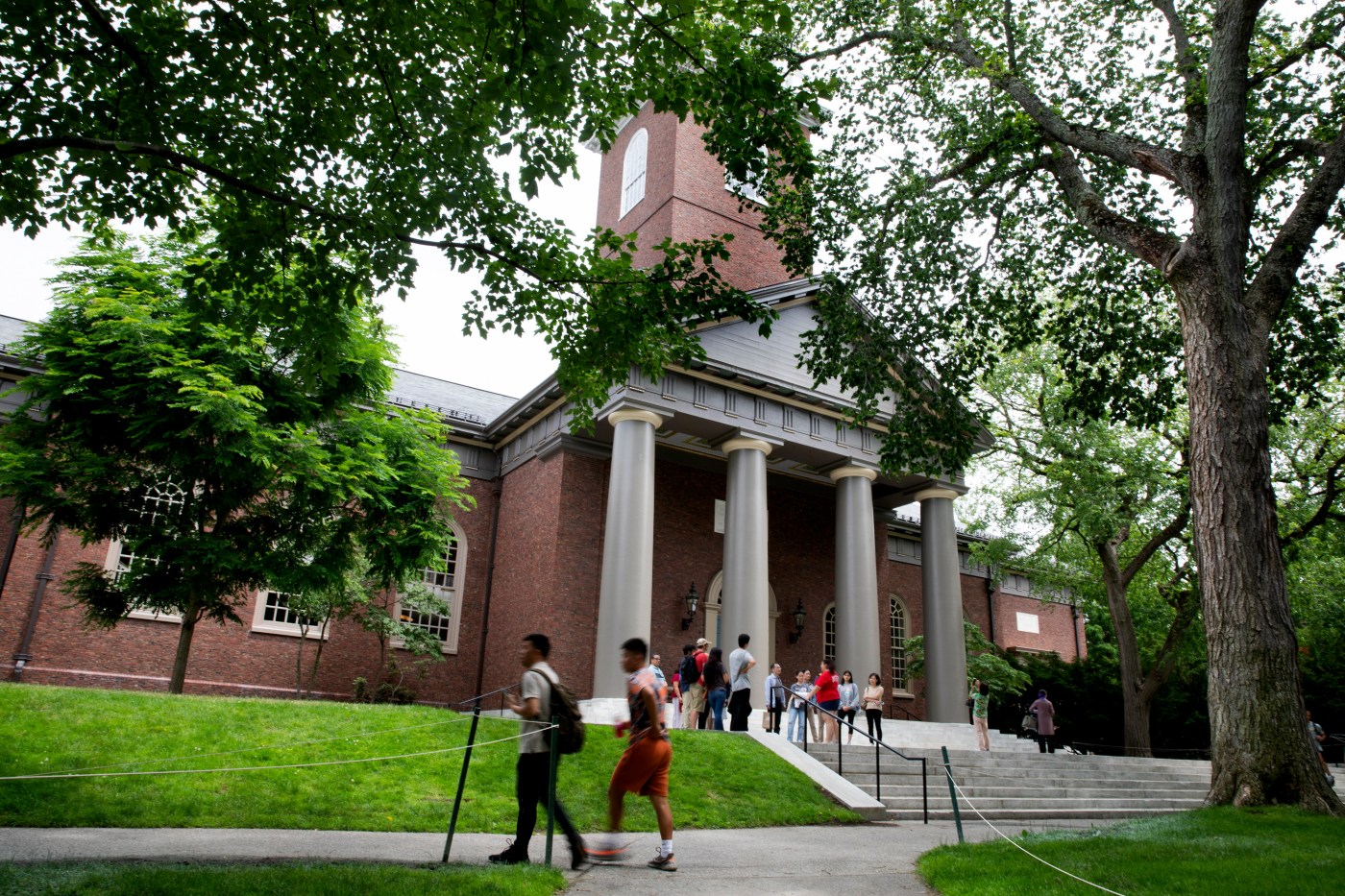
Pamela Paul: Colleges are putting their futures at risk
For more than a century, an understanding existed between America’s universities and the rest of the country.
Universities educated the nation’s future citizens in whatever ways they saw fit. Their faculty determined what kind of research to carry out and how, with the understanding that innovation drives economic progress. This gave them an essential role and stake in both a pluralistic democracy and a capitalist economy — without being subject to the whims of politics or industry.
The government helped finance universities with tax breaks and research funding. The public paid taxes and often exorbitant tuition fees. And universities enjoyed what has come to be known as academic freedom, the ability for those in higher education to operate free from external pressure.
“Academic freedom allows us to choose which areas of knowledge we seek and pursue them,” said Anna Grzymala-Busse, a professor of international studies at Stanford University. “Politically, what society expects of us is to train citizens and provide economic mobility, and that has been the bedrock of political and economic support for universities. But if universities are not fulfilling these missions, and are seen as prioritizing other missions instead, that political bargain becomes very fragile.”
Her remarks came during a recent conference on civil discourse at Stanford, ranging from free expression on campus to diversity, equity and inclusion hiring statements. But underlying all the discussions was a real fear that universities had strayed from their essential duties, imperiling the kind of academic freedom they had enjoyed for decades.
Of course, there have long been attempts at political interference in academia, with a distrust of elitism smoldering beneath the widespread disdain for the ivory tower. But in the past few years, these sentiments have boiled over into action, with universities jolted by everything from activism by its trustees to congressional investigations to the wresting of control by the state to the threatened withdrawal of government support.
The number of Republicans expressing a great deal or quite a lot of confidence in universities plummeted to 19% last year, from 56% in 2015, according to Gallup polls, apparently due largely to a belief that universities were too liberal and were pushing a political agenda, a 2017 poll found. But it could get much worse.
“A Trump presidency with a Republican legislative majority could remake higher education as we’ve known it,” Steven Brint, a professor of sociology and public policy at the University of California, Riverside, warned last week in The Chronicle of Higher Education, citing the potential for the Department of Justice to investigate universities for admissions procedures, for example, or penalties for schools that the government determines are overly beholden to social justice priorities. In some states, it could mean decreased funding from the state, the elimination of ethnic studies or even the requirement of patriotism oaths.
That would bump up against what many students, faculty and administrators view as the point of a college education.
“I was reading applications for my graduate program,” said Jennifer Burns, a history professor at Stanford. “The person would describe their political activism and then say, ‘And now I will continue that work through my Ph.D.’ They see academia as a natural progression.” But, she cautioned, the social justice mentality isn’t conducive to the university’s work.
“We have to keep stressing to students that there’s something to being open-ended in our work; we don’t always know where we want to go,” Burns said.
Right now, the university’s message is often the opposite. Well before the tumultuous summer of 2020, a focus on social justice permeated campuses in everything from residential housing to college reading lists.
“All of this activity would be fine — indeed, it would be fantastic — if it built in multiple perspectives,” noted Jonathan Zimmerman, author of “Whose America: Culture Wars in the Public Schools,” in a 2019 essay in The Chronicle of Higher Education. “For the most part, though, it doesn’t.”
Instead, many universities have aligned themselves politically with their most activist students. “Top universities depend on billions of dollars of public funding, in the form of research grants and loan assistance,” The Economist editorialized last week. “The steady leftward drift of their administrations has imperiled this.”
One of the starkest examples of this politicization is the raft of position statements coming from university leadership. These public statements, and the fiery battles and protests behind them, take sides on what are broadly considered to be the nation’s most sensitive and polarized subjects, whether it’s the Dobbs ruling or the Deferred Action for Childhood Arrivals program for young immigrants, the Israel-Hamas war or Black Lives Matter.
At last month’s conference, Diego Zambrano, a professor at Stanford Law School, made the downsides of such statements clear. What, he asked, are the benefits of a university taking a position? If it’s to make the students feel good, he said, those feelings are fleeting, and perhaps not even the university’s job. If it’s to change the outcome of political events, even the most self-regarding institutions don’t imagine they will have any impact on a war halfway across the planet. The benefits, he argued, were nonexistent.
As for the cons, Zambrano continued, issuing statements tends to fuel the most intemperate speech while chilling moderate and dissenting voices. In a world constantly riled up over politics, the task of formally opining on issues would be endless. Moreover, such statements force a university to simplify complex issues. They ask university administrators, who are not hired for their moral compasses, to address in a single email thorny subjects that scholars at their own institutions spend years studying. (Some university presidents, such as Michael Schill of Northwestern University, have rightly balked.) Inevitably, staking any position weakens the public’s perception of the university as independent.
The temptation for universities to take a moral stand, especially in response to overheated campus sentiment, is understandable. But it’s a trap. When universities make it their mission to do the “right” thing politically, they’re effectively telling large parts of their communities — and the polarized country they’re in partnership with — they’re wrong.
When universities become overtly political and tilt too far toward one end of the spectrum, they’re denying students and faculty the kind of open-ended inquiry and knowledge-seeking that has long been the basis of American higher education’s success. They’re putting its future at risk.
Pamela Paul writes a column for the New York Times.
Related Articles
Other voices: TikTok scapegoated for failure to regulate Big Tech
Thomas Friedman: Netanyahu is making Israel radioactive
Karl W. Smith: If only Congress would focus on the deficit that matters
Stephen L. Carter: The Ivy League is right to revive the SAT
Lisa Jarvis: Sex differences could be key to treating long COVID — and so much else

